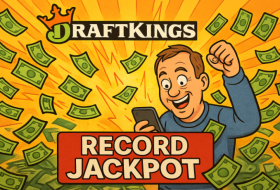
The Commodity Futures Trading Commission (CFTC) has filed a motion to voluntarily dismiss its appeal against a federal court decision that allowed predictions market platform Kalshi to offer contracts on US election outcomes. Barring an explicit change to the CFTC’s rules, that means Kalshi and potentially other platforms will continue to be able to offer their users predictions contracts on the outcome of political contests within and outside the US.
Under the agreement, each party will cover its legal, attorney, and court fees, including earlier court proceedings. Kalshi also agrees not to make any claims for compensation related to the case.
The end of a two-year legal standoff
The CFTC’s move will end the nearly two-year battle over election outcome contracts. In June 2023, Kalshi, a platform that allows customers to trade on event outcomes, filed a request with the CFTC to offer markets on election results. The idea was met with criticism, with some lawmakers greatly opposed to it, calling for political predictions to be banned.
In September 2023, the CFTC, which regulates the US derivatives market, including futures, swaps, and options, denied Kalshi’s request. The commission determined that the election event market trading amounts to gambling. In response, Kalshi sued the CFTC in November 2023, arguing that the commission exceeded its authority.
In September 2024, a District Court of Columbia judge sided with Kalshi, and the platform started issuing contracts. However, that did not last long, as the CFTC appealed, requesting an emergency motion for a stay. The following month, the DC Circuit Court denied the CFTC’s motion for a stay, allowing Kalshi to reopen the general election markets. However, the court’s decision was without prejudice, allowing relitigation if the CFTC found new evidence or arguments to support its allegations.
Shifting political views on prediction markets
The CFTC’s decision to drop the appeal comes amid shifting political attitudes toward prediction markets under the Trump administration. Though the DC Circuit Court heard arguments in January, it never issued a final ruling, leaving the resolution in limbo until now.
One of the first signs of a momentum shift was Donald Trump Jr. joining Kalshi as a strategic advisor in January. The president’s son then took to social media to tout the platform’s ability to accurately represent the recent presidential election.
In February, President Trump nominated Brian Quintenz as the new chair of the CFTC. Quintenz, who previously served in the role during Trump’s first term, has longstanding ties to the fintech and crypto sectors. After leaving the CFTC in 2021, Quintenz has served as cryptocurrency policy lead at venture-capital firm a16z. He’s also served on Kalshi’s board, underscoring the administration’s favorable view of prediction markets.
Crime-related contracts are still off-limits
While Kalshi has scored a victory on election markets, some event contracts are still off-limits. At the end of last year, the CFTC told Kalshi it could not offer crime-related contracts after the platform had prediction markets related to Luigi Mangione. Mangione is the suspected gunman in the December killing of UnitedHealthcare CEO Brian Thompson.
Unlike election markets, crime-related ones specifically violate the CFTC’s rules. Under Regulation 40.11, event markets that reference “terrorism, assassination, war, gaming, or an activity that is unlawful under any State or Federal law” are prohibited.
Kalshi complied and removed the contracts shortly after the CFTC notice. However, offshore platform Polymarket, which operates outside US jurisdiction, continued to offer contracts related to Mangione. Some are still active today.





